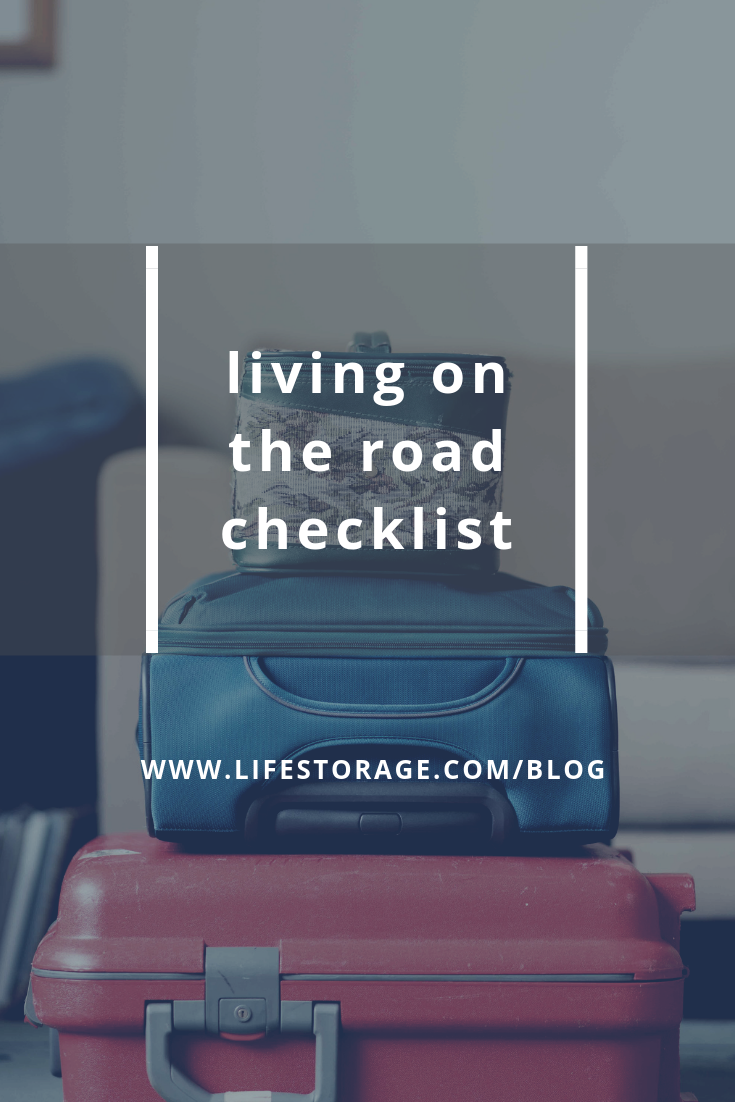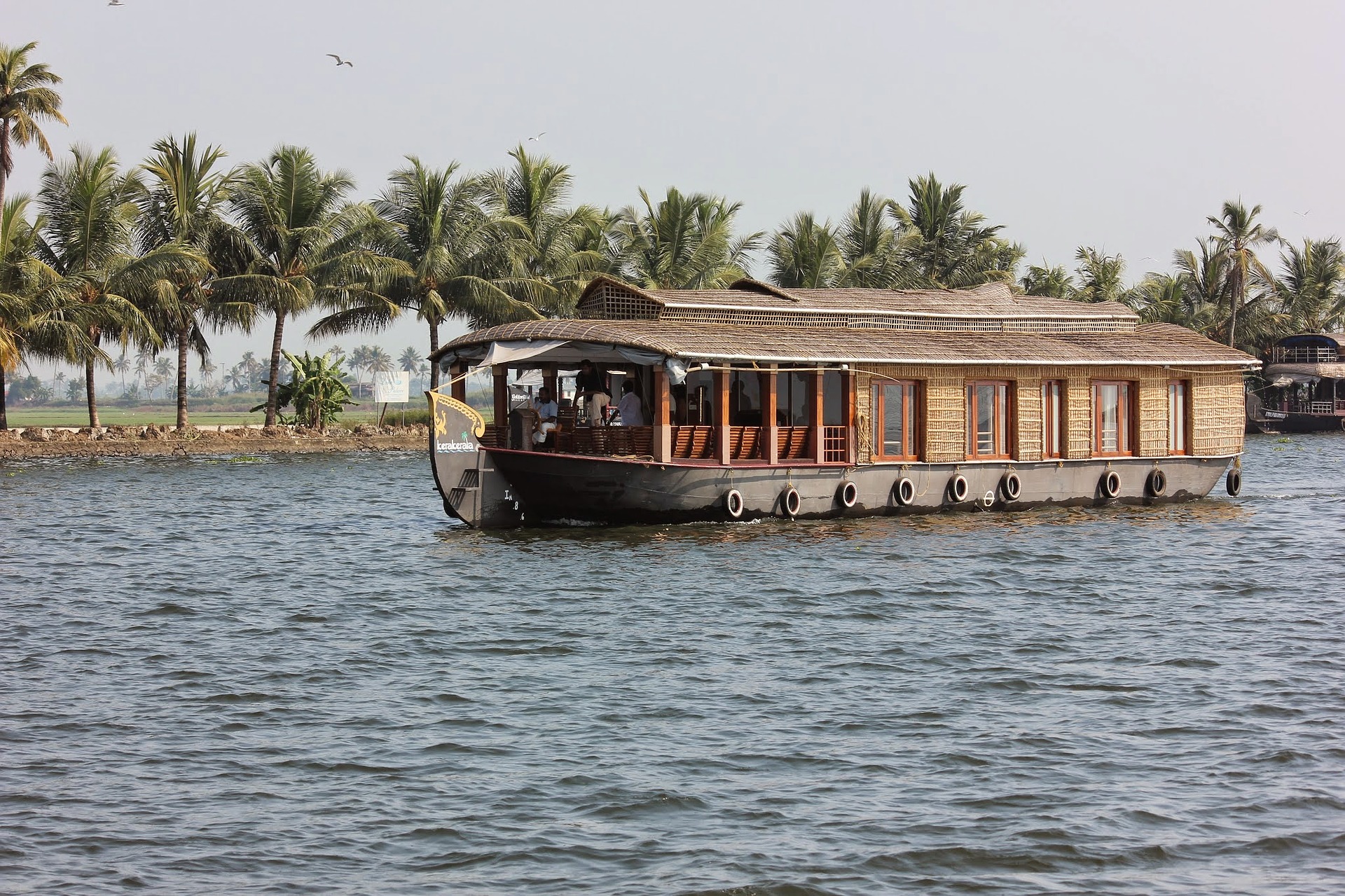
Americans love to travel for weeks and months at a time. However, some people make a living on the road a full-time gig. Are you wishing to be one of those people?
Alternative lifestyles are popular among retirees, snowbirds, and freedom-seeking young couples and range from living in an RV to living on a houseboat.
If you are seeking a long-term or permanent alternative lifestyle revolved around travel, there’s a multitude of full-time travel options to consider.
Once you decide which method is right for you, there’s still a ton to do to get ready for living on the road.
We’ve thought up some helpful tips and steps to consider as you pack up your life in a standard house and prepare for a life of travel and adventure.
How to Prepare for Life on the Road
There are tried-and-true ways to make a life of traveling (RVing), and there are some newer, more popular travel options (Airbnb hopping). The most important decision you make will be how you’re getting from A to B and where you’ll stay when you get there.
In terms of length of stay in any given location, that decision can be and usually is more spontaneous. Beyond that, then comes the logistical planning of how to make living on the road a reality. As storage experts, we have some advice on how to handle all your stuff.
1. Decide on your method of travel.

RVing
A recreational vehicle (RV) is an obvious choice for a life of travel. These self-contained homes on wheels come in sizes ranging from converted vans to rolling McMansions.
With an RV, home truly is where the heart is. You don’t need a hotel if you can find a slot in an RV park—or even on the side of the road. If you’ve never driven one, your best bet is to rent before you invest the nest egg.
Because of their size, even the smaller RVs can be intimidating to drive. Making tight turns, backing up, and parking are all more challenging when you’re steering a land yacht. You also have to be extremely aware of heights when approaching bridges or entering a garage or fast food drive-through.
If you decide to buy, give serious thought to the extended warranty. Also, be aware that RVs depreciate. But they may qualify for a second-home mortgage deduction if they’re equipped with the amenities essential to satisfying IRS requirements.
Houseboat
Instead of living by the water for a premium, why not live on it? You can make your home on a houseboat with limited boating knowledge and no sailing skills.
A big, new houseboat with every bell and whistle can set you back seven figures. But if you’re patient and do your research, you may be able to pick up a used bargain.
Regulations will vary depending on where you want to float your boat. You may be able to find free anchorage in some waterways, but you’ll need to have a runabout to get you to land and back.
More likely, you’ll need to find a slip at a marina, which typically charges by the foot. True, you won’t be paying property taxes or doing yard work, but boat living is not maintenance-free.
In addition to slip fees and marina dues, you’ll need to set aside money for insurance, sewage pump-out, fuel, bottom-scraping, and routine upkeep. Water, especially salt water, eats away at your boat. Any part or material with the word “marine” in front of it is expensive.
Sailboat
Living aboard a sailboat (monohull, catamaran or trimaran) requires the same docking expenses as a motorboat. Standard living size sailboats may be cramped as they lack headroom and storage space below deck.
Luxury catamarans and trimarans can be quite spacious. The distinct advantage to a sailboat is the convenience of being able to hoist anchor and set sail for new lands.
Don’t forget that you’ll need to secure everything that can tip, spill, or break before you take off. If you go this route, prepare by taking Coast Guard-approved boating and navigation courses.
Hotel
If you have a generous budget, like to have flexibility in your travels, and prefer central heat, modern plumbing, and room service, a hotel is a wise choice for living on the road. There is an unlimited number of hotels for every comfort level.
International hotels sometimes lack in-room bathrooms so that may be your best first question. If you want to stretch your budget and still keep flexibility, look for last minute hotel deals on discount sites like Travelzoo, Hotwire, and Hotels.com.
Albeit expensive, hotel living is a convenient and comfortable temporary or permanent alternative to home ownership. The rooms or suites are fully furnished, the rooms are cleaned every day, you have full use of all amenities, and you can move to different cities and countries at will.
Airbnb or VRBO
A more homey choice is the option to rent a furnished house or villa in the desired location. Long-term vacation rentals offer an attractive alternative to hotels for people who prefer the self-sufficient comforts of home and want to immerse themselves in the area culture.
You also get to avoid taxes and repairs and leave whenever you wish without worrying about a long term mortgage. Renters can get discount rates in the offseason as well.
If you are a homeowner, you can choose to exchange homes with people in other locales or countries to make living on the road more feasible.
Bed & Breakfast
One can also choose to travel along the Bed and Breakfast route. B&BS, as they are fondly called, are usually small boutique hotels or homes converted into comfortable “boarding houses” that have shared kitchen facilities or breakfast provided with overnight rates.
B&BS are generally less expensive than area hotels—amenities are usually limited. You can find an excellent selection of B&BS.
2. Take an inventory of your belongings.

Nobody is going to pretend this will be easy. You’ve spent a lifetime accumulating your stuff. You’ve probably formed emotional attachments with much of it.
You could just rent your place furnished and hope for the best, but that’s not always the best idea—especially if you have a lot of sentimental value items. It may be time to make some decisions about what stays, what goes, and what goes into storage.
The first thing to do is take an inventory of your stuff. How much of it do you love and how much is just taking up space?
Consider this: most storage places charge by the square foot. Here’s what you can expect to pay for self-storage in your city.
3. Get rid of whatever you don’t need.

Do you want to store those old college textbooks – the ones with a quarter inch of dust on them? The truth is you will likely never open them again so it may be best to donate them. That goes for the board games, half-finished furniture, one-size-too-small clothing, and the extra set of dishes too.
If you’re about to be living on the road, you have to look at everything in terms of ‘love it or cash it in.’
By all means keep your mother’s cedar chest, your valuable collectibles, the pictures of your family vacations, and maybe even your winter sports equipment. Take small items with you and put other must-have items in storage or leave it with family.
Searching for self storage in your area? Life Storage has secure storage units located throughout the U.S. Rent cheap self storage near you!
Try to get rid of everything else.
If you can sell something at a garage sale or online, that’s more money to fund your dream. On the other hand, if you itemize your taxes, some of your cast-offs might be worth more to you as charitable deductions.
Either way, your goal is to pare your possessions down to the things you genuinely treasure and want to come back to at journey’s end.
Last-Minute Details
You know how you’re getting around and you know what to do with your stuff, but there’s still a lot to do! Think about all the things you worry about when you take off for a weekend and multiply them by a zillion. You can’t foresee every eventuality, but you can put your mind at ease by taking care of some basic chores.
Read this long-term travel checklist:

House Related
- If you’re a homeowner, contact your insurance agent to let him or her know your property will be unoccupied for an extended period. It may require that you purchase additional coverage. If you plan to rent your property while you’re away, you’ll need landlord insurance.
- If you’re renting your property out, get a property manager to collect rent, and deal with tenant issues.
Car Related
- If you’re storing a vehicle long-term, notify your DMV and your insurance agent. You can reduce DMV registration fees to a few dollars by filing a non-use certificate. You may also be able to get a reduced auto insurance premium, depending on your circumstances.
People Related
- Most health insurance plans will cover you in an emergency when you’re away from home for a while, but they won’t cover non-emergency procedures. If that’s a concern, look into temporary medical coverage for travelers. Medicare does not cover emergencies outside the U.S. (some exceptions may be made for Mexico and Canada). Some Medicare supplemental plans may provide emergency coverage abroad. Check your plan to be sure.
- Check with your doctor about renewing prescriptions on the road. Get the biggest supply you can to take with you.
- Make a dentist appointment, have your teeth cleaned, and get any dental work done.
Paperwork Related
- Let your bank and your credit card companies know that you’ll be traveling.
- Make sure your passport is current just in case you decide to cross a border or go abroad.
- Set up a web-based email account.
- Open a spare credit card account that you will use only for emergencies.
- Write down the phone numbers of your credit cards’ lost card helplines, your insurance agent, and other relevant contact information. Send them to your web-based email account, so you have a ready copy.
- Make photocopies of essential documents (your driver’s license, insurance policies, etc.) or get an online digital safe deposit box such as MyVault where you can store all your relevant documents and give full or limited access to a trusted person just in case something happens to you.
We hope this guide helped you take the first steps to living on the road. How do you make the most of an alternative lifestyle? Do you use storage while you’re away? Join the conversation on our Facebook page.






